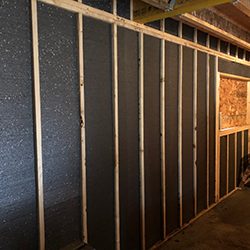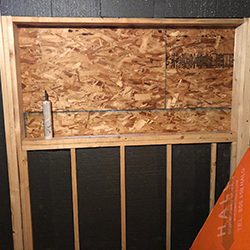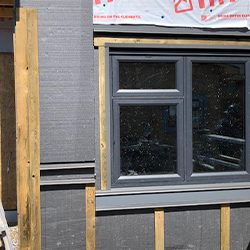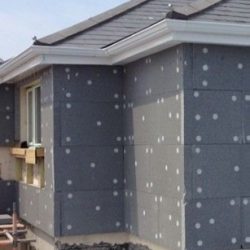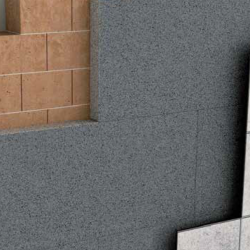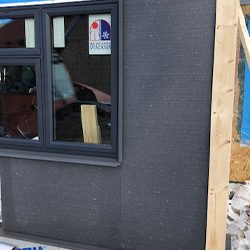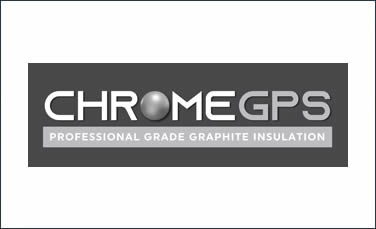
Chrome is an environmentally conscious polystyrene insulation enhanced with Graphite, delivering the highest available R-value without blowing agents or off-gassing. It ensures stable long-term thermal performance and boasts an exceptionally low embodied carbon footprint. Cost-effective and offering high R-value, Chrome GPS Rigid Insulation is offered in standard sizes of 2ft x 8ft and 4ft x 8ft, ranging from ½” to 48” in thickness, with options for custom sizes.
CHROME GPS is S.M.A.R.T. Insulation:
Stability
CHROME GPS provides stable long term R-value performance with no loss of R-value over time.
Moisture-management
CHROME GPS is breathable and semi-permeable and will reduce the risk of mold, rot and structural damage associated with moisture condensation and long-term water retention.
Adaptable
CHROME GPS powers up when it gets cold outside as the R-value increases as temperatures decrease.
Resource-efficient
CHROME GPS uses up to 30% less material compared to other rigid foam insulation to achieve the same R-value.
Third-Party Certified
CHROME GPS with Neopor ® Plus is GREENGUARD Gold Certified and has been referenced by both The Collaborative for High Performance Schools (CHPS) and the Leadership in Energy and Environmental Design (LEED®) Building Rating System.
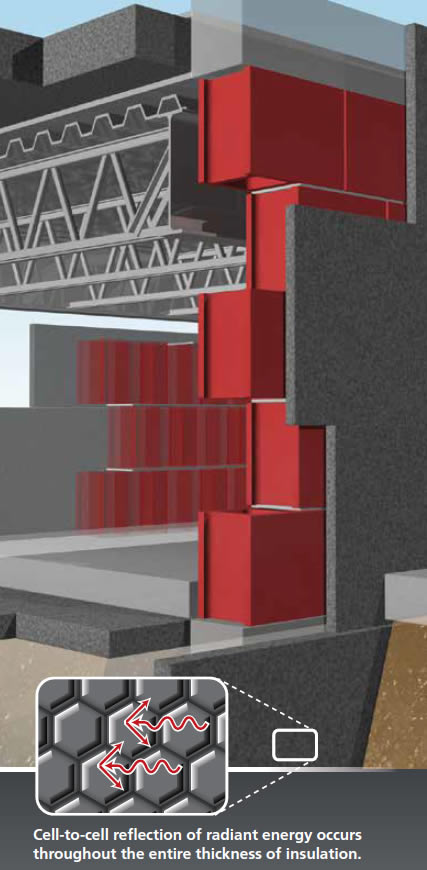
APPLICATIONS
- Perimeter insulation for grade beams and foundation walls
- Under concrete slabs on grade
- Exterior Insulation
- Above-grade insulating sheathing under stucco and siding
- Masonry Cavity Walls
- Roof Insulation, flat and sloped applications
- Coolers, Freezers and Ice Arenas
- Floatation applications
- Hot Tub Covers
- Packaging, protection, container linings
- Custom fabrications and applications
Chrome is a professional construction grade, graphite enhanced polystyrene (GPS) rigid foam insulation.
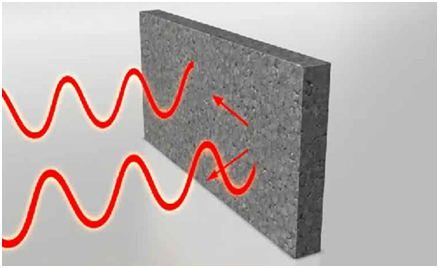
This advanced product extends the Neopor® Plus lineage by offering unparalleled R-value performance without any LTTR loss. Chrome GPS consists of numerous tiny air pockets embedded in a polymer matrix infused with graphite. The graphite acts as a radiant heat barrier, effectively enhancing the material’s resistance to heat flow, or R-value.
